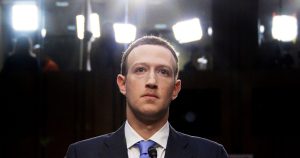World super rich and tech tycoons on Wednesday, September 13 met at a summit held in Washington DC, US.
The tycoons with a combined net worth of roughly USD 500 billion gathered following an invitation by US Senate Majority Leader Chuck Schumer.
According to sources from the closed-door meeting, the billionaires met to discuss how to regulate artificial intelligence (AI).
Attendees included Tesla Inc. Chief Executive Officer Elon Musk (worth USD 242.1 billion), Microsoft Corp. co-founder Bill Gates (USD 128.6 billion) and Meta Platforms Inc. CEO Mark Zuckerberg (USD 109.7 billion).

Nvidia Corp. co-founder Jensen Huang (USD 40 billion) and former Google CEO Eric Schmidt (USD 26.6 billion) were also there.
According to a US publication, NBC News, Musk warned senators that artificial intelligence poses a “civilizational risk” to governments and societies.
Quoting a senator who attended the closed-door meeting, the publication noted that Musk termed the meeting as historic in the future of technology.
“The consequences of AI going wrong are severe so we have to be proactive rather than reactive,” Musk told a gaggle of reporters before he ducked into his waiting Tesla.
“The question is really one of civilizational risk. It’s not like … one group of humans versus another. It’s like, hey, this is something that’s potentially risky for all humans everywhere,” Musk told the reporters after leaving the meeting.
Altman, the CEO of ChatGPT parent company OpenAI, stated that he was surprised, given the format, by the broad agreement in the room on “the need to take this seriously and treat it with urgency.”
“I think people all agreed that this is something that we need the government’s leadership on,” Altman told reporters during a break.
“Some disagreement about how it should happen, but unanimity this is important and urgent,” he added.
AI has gained popularity in almost all fields, especially in the media industry contributing to the rise of fake news.
With AI-generated photos and clips, some individuals have pushed information risking national security including in advanced nations such as the US.
Regulating the sector according to US lawmakers will protect unsuspecting users from consuming misleading information and even protect the jobs of thousands of others.
